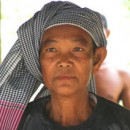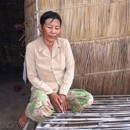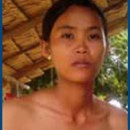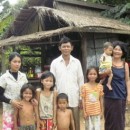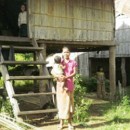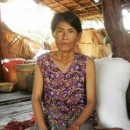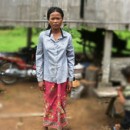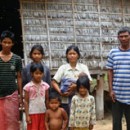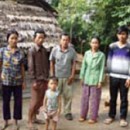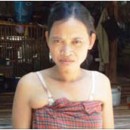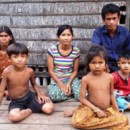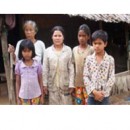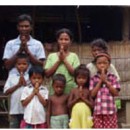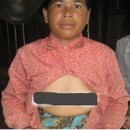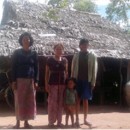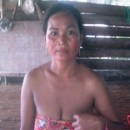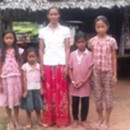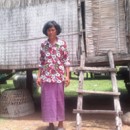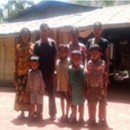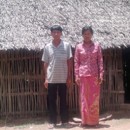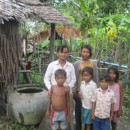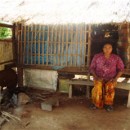April 2011
Dear friends and partners,
Last week was Khmer New Years and Miriam and I went off to Bangkok for a few days’ holidays with some friends. We took our respective girls to a theme park and as they were riding the rides we talked about Nokor Tep Women’s Hospital and our vision. My friend said without thinking, “I don’t know why you are doing this? Ignorance is bliss and what people don’t know, won’t hurt them”. As I was watching our two girls do an upside down turn on the roller coaster, I thought to myself, in this instance, ignorance is bliss. I really don’t want to see my girl hanging upside down on a ride I don’t trust.
 As I was thinking about her comments, I became a bit more pensive. Ignorance is bliss – what an odd statement – rather an arrogant one on our behalf, for I do believe we tend to make judgments from a position of choices and wealth. I thought about our many families that we work with, where illness and ignorance are not bliss. In fact, the opposite is true.
As I was thinking about her comments, I became a bit more pensive. Ignorance is bliss – what an odd statement – rather an arrogant one on our behalf, for I do believe we tend to make judgments from a position of choices and wealth. I thought about our many families that we work with, where illness and ignorance are not bliss. In fact, the opposite is true.
For Sokha, life is extremely hard. She has 10 children, the oldest, a girl at 16. Several years ago, Sokha became ill – at first she lived with the discomfort – she would faint without warning –she was breathless. She began to go to local elders for help and they encouraged her to take herbal teas – which she did - but things got worse. In desperation her and her husband sold a hectare of land and with the money, they began the rounds of doctors in nearby towns – each cost money – each guessed at the illness – there were no tests done- each gave her medicine and nothing changed. They sold the last hectare of land and with this money she went to Phnom Penh. The money dwindled fast as clinics couldn’t help her. In desperation she finally found a hospital that carried out some tests. She suffered from high blood pressure and heart palpitations. Their medicine worked. Then her husband became ill. Every day he passes urine in his blood but there is no land left to sell, no money left to eat with, no way to find help. In desperation they made their 2 oldest daughters go to Phnom Penh and find work in a factory. One is fourteen, the other sixteen. With their income, there is food on the table.
But the girls were frightened to be on their own, so they hooked up with a man who offered them a room to sleep in if they would but sleep with him. He offered safety in a sea of confusion, hundreds of workers, long days and short nights – surrounded by men who took advantage of the young girls, girls who are frightened and away from home, girls who have no knowledge of what life is all about. Inevitably, the youngest is now pregnant – she continues to work – the family must eat. As we talked and Sokha finished her tale, she looked at me. I didn’t know, she said, I didn’t know where to find help with my illness, I was afraid to die, we sold all that we had, now my husband is sick. I didn’t know about the factories, I didn’t know what goes on there. I just didn’t know. For Sokha and so many like her, ignorance does not bring bliss – it brings poverty and guilt, it brings hurt and pain. And the illness, the illness remains. I am saddened. Nokor Tep is part of our answer to Sokha’s pain and to thousands of others like her. I thank my God that I have access to medical care – that I am not so ignorant of what ails me. I ask my God that we change the dictum of ignorance is bliss to ignorance is not acceptable. Thank you for standing with us as we travel this path together – with all the Sokha’s in Cambodia.
Janne






